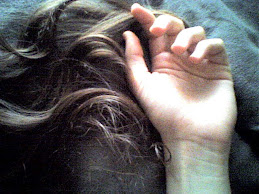Excited by my new Netflix membership, I watched a Pedro Almodovar movie titled as La Flor de Mi Secreto (1995) yesterday, right on my laptop's monitor (you have an option to watch some of Netflix movies instantly on your own pc).
The first film I had watched by Almodovar was Volver (2006) which was a women's movie, in my opinion. A delicate plot, full of psychological hints and details, adorned by the beauty of the actress Penelope Cruz. A sweet story of life and death, decision and hesitation, mothers and daughters and daughters and mothers. At times Volver may bother you with details, but does never fail to impress you in its own way. It was a good movie, anyway.
La Flor de Mi Secreto is again about love and death, but death here, is metaphorical rather than physical (in the first sequence, when the actors are talking about a young guy's death and a they argue about donating his organs so that other people could live, physical death and the possibility of life after that foreshadows the theme of metaphorical death and the possibility of resurrection that happens to Leo).
It would be oversimplifying to say that Leo is a passionate, alcoholic, talented woman. She is all of those things plus something more. She is an idealist in its true sense, yearning for perfection in love, literature, humanity and life. A very fragile, embittered perfectionist, though: when she finds out the man she loves, her husband, has no feelings for her anymore, she dies emotionally (symbolically, she takes a lot of pills that put her into a state of unconsciousness -- a long sleep)When she wakes up and throws up, then baptizes herself in the bathtub, she is already on her way to start life again.
If we analyze Leo from a classical Freudian point of view, we can conclude that her dependence on alcohol, is a way to compensate for her dissatisfied oral passion (remember the scene she kneels down in front of Paco, touching him with her lips as she is wrapping him in a towel). She is told by her friend not to act like a "child" and talk to Paco like "adults", which brings an image of an infant Leo to me, in search of a soothing feeding breast (look how her relationship with her mother is portrayed, and how her mother takes care of her after she breaking up with Paco, i. e. Leo returns to a stage from which she has never outgrown).
In the final sequences of the movie Leo says she is determined not to drink alcohol anymore, and that she needs to learn to be alone. Angel (another alcohol-dependent personality who can be taken as Leo's animus, in Jungian terms) is there to share Leo's resurrection. They join together as "flesh" in the last sequence of the movie.
Another interesting point was that in this movie, it's been mentioned that some story that has been stolen from Leo has been set into a film script and a director is making a movie based on that. Now this story, as implied in this movie, turns out to be the plot of Volver which comes out almost a decade after this movie, so in a sense, Volver is based on a stolen plot: Almodovar has stolen the plot from one of his own characters, Leo! I liked that intertextul hint in the movie.
Watch the trailer here (pause the background music on the right margin before watching this):



No comments:
Post a Comment